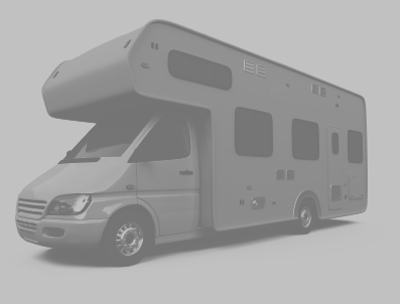What Kind of RV Insurance Should I Get?
Article Featured
Are you planning your next adventure in an RV or already living life on the road? Choosing the right insurance is crucial to protect your investment and safeguard yourself against unexpected risks. From liability coverage to comprehensive protection, here’s everything you need to know to find the right RV insurance for your needs.
Essential Types of RV Insurance Coverage
1. Liability Insurance
Liability insurance is fundamental for RV owners, covering you if you're responsible for injury or property damage to others. It has two main components:
- Bodily Injury Liability: Covers medical expenses, rehabilitation, and legal costs if you injure someone.
- Property Damage Liability: Pays for damage to another person’s property (e.g., their vehicle or a building) and legal fees if they take action against you.
Most states require liability insurance, but it’s wise to consider coverage limits above the legal minimum for added security.
2. Collision Insurance
Collision insurance covers damage to your RV if it's involved in a collision with another vehicle or object. This coverage is particularly valuable for newer or high-value RVs where repair or replacement costs are significant.
- Deductible: You’ll need to pay a deductible, which affects your premium rate.
If your RV is financed, collision insurance may be mandatory. Even without a loan, it can provide peace of mind on the road.
3. Comprehensive Insurance
Comprehensive insurance protects your RV from non-collision incidents, including theft, vandalism, severe weather, fire, and animal damage. It’s essential for RVs parked for long periods or stored during off-seasons.
- Protection: Covers a wide range of risks, such as hailstorms, tornadoes, and theft.
This type of coverage typically requires a deductible. Choose a deductible amount that aligns with your budget and the value of your RV.
Additional RV Insurance Options
4. Uninsured/Underinsured Motorist Coverage
Uninsured/underinsured motorist coverage safeguards you if you're hit by a driver with little or no insurance. It covers medical expenses, repairs, and other costs if the at-fault driver cannot pay.
- Protection Against Uninsured Drivers: This is essential for financial security if an uninsured driver is responsible for an accident.
5. Personal Belongings Coverage
As your home on wheels, your RV may contain valuable items. Personal belongings coverage protects items like electronics, clothing, and kitchenware against theft, damage, or loss.
- Coverage Limits: Review policy limits to ensure they cover the full value of your belongings.
6. Full-Timer’s Coverage
If your RV is your permanent residence, full-timer’s coverage is vital. It’s similar to homeowner’s insurance and covers extended liability, personal property, and additional living expenses if your RV becomes uninhabitable.
- Ideal for Full-Time RVers: Provides comprehensive protection for those who use their RV as a primary home.
7. Vacation Liability Coverage
Vacation liability coverage is designed for RVers who stay at campgrounds or RV parks. It covers liability for bodily injury or property damage while your RV is parked and used as a temporary residence.
- Coverage in Campgrounds: Offers financial protection in case someone is injured at your RV or if you accidentally damage campground property.
What Type of Financing is Available for RV Insurance?
RV insurance policies can vary widely, so it’s crucial to compare providers. Deductibles, premiums, and specific policy terms may differ. Some insurance companies offer discounts for bundling policies or other factors like safe driving records.
Can You Convert Your RV Insurance to Real Property?
In some cases, you might want to reclassify your RV as real property, but it requires meeting specific criteria, such as affixing it permanently to land you own. This conversion could lead to more insurance options and potentially lower taxes but comes with additional costs.
Final Thoughts: Choose the Right RV Insurance
Investing in the right RV insurance is essential to protect yourself, your passengers, and your RV. Evaluate each coverage option and choose the policy that aligns with your lifestyle, budget, and state requirements. By customizing your RV insurance, you can enjoy peace of mind on the road and focus on making unforgettable memories in your home on wheels.





















